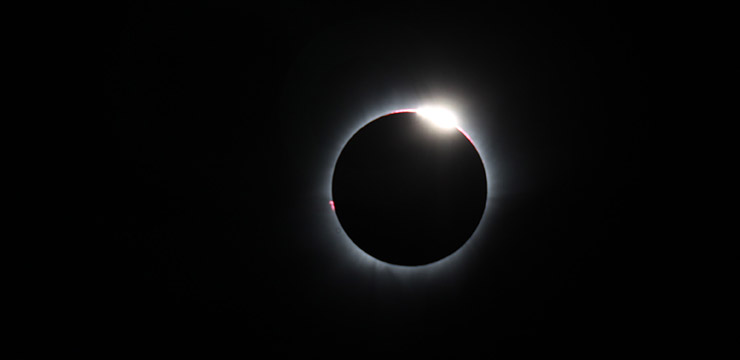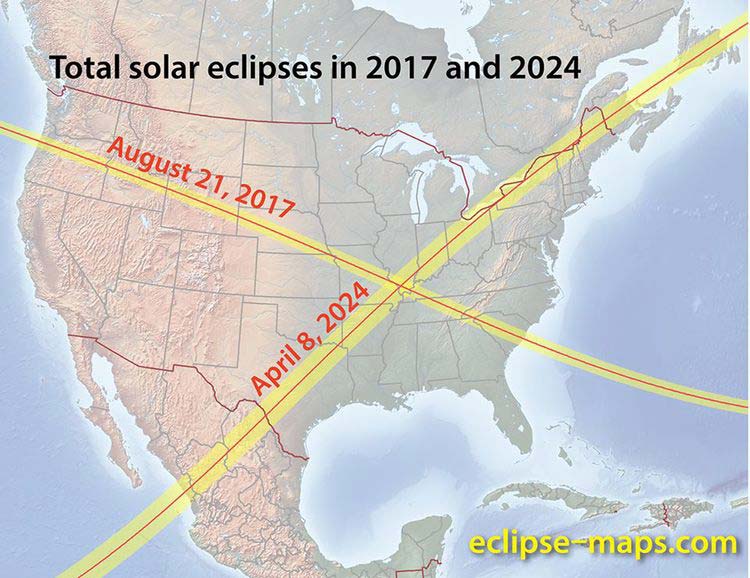
Appreciating the Nature of a Solar Eclipse
April 2017 :
By now, all members of Skyscrapers, Inc., are aware that on Monday, August 21st, the U.S. will be home to its first total solar eclipse in decades. And, it will be all ours – the path of totality runs completely through the continental United States, from Oregon down through South Carolina. Also, the rest of the country will be able to observe a partial phase. For us in Southern New England, the Sun will lose just under three quarters of its ball to the dark of the New Moon.
Even more striking is the fact that, just seven years later, the U.S. will again be home to a total solar eclipse, but this time it will literally cross in the opposite direction – from the Southwest, and up through New England, although we will share it with Mexico and eastern Canada. Because of its apparent giant “X” configuration, people living near Carbondale, Illinois will be at the crux, able to enjoy the two without leaving home; in fact, the residents are gearing up for this year's festivities at their Southern Illinois University's Saluki Stadium, most likely with the thought that they will all be back again in 2024.

Which brings up a problem: We will be having two almost indescribably beautiful phenomena forming a distinct “X,” or cross, clear across the face of our continent. In addition to astronomy lovers, other disciplines are already gearing up for the “meaning” of this occurrence. Especially notable is the concept of the relevance to such as the Rapture. Certain clergy are already making plans for the astronomical signs that the end of the world is at hand. Especially important is the time frame of the 2024 eclipse. It is believed the years between the two will mark trials and tribulations in preparation for The End. Anything that happens in the sky from August, 2017 to April, 2024 will be yet another vindication that we don't have much time left here on Earth.
And why, you may ask, are we mentioning this? Why should we as amateur astronomers even care? We love the sky, and will do everything we can to enjoy it. But, there are more people willing to take the word of someone who does not understand what is happening overhead, and then interprets it to mean some type of finality, than there are of us. Most may remember 2012 – with the transit of Venus, the inaccurately called positioning of the winter solstice, plus the apparent end of the Mayan calendar – but notice, we're still here. Some may recall the devastation caused by one man who equated a comet tail with The Coming. Even going back to 1991, where the Mexican president had to declare a ban on driving during the middle of the day – during eclipse time – and he had to issue a decree assuring the public that no cows would stop producing milk while that year's eclipse was in progress.
Many of us are preparing to either leave this area to venture to the path of totality, or stay here and observe our percentage in hopeful clear-sky comfort. We should also be taking the time we have before the eclipse to make sure as many people as possible know about the beauty, and the scientific aspects, of this event as possible.
Professor Jay Pasachoff of Williams College, who has already observed 65 total solar eclipses, refers to the awe-inspiring nature of an eclipse. This is what it should be, not an object of fear. Let us as lovers of the sky make sure this year's eclipse is, in fact, just that.



